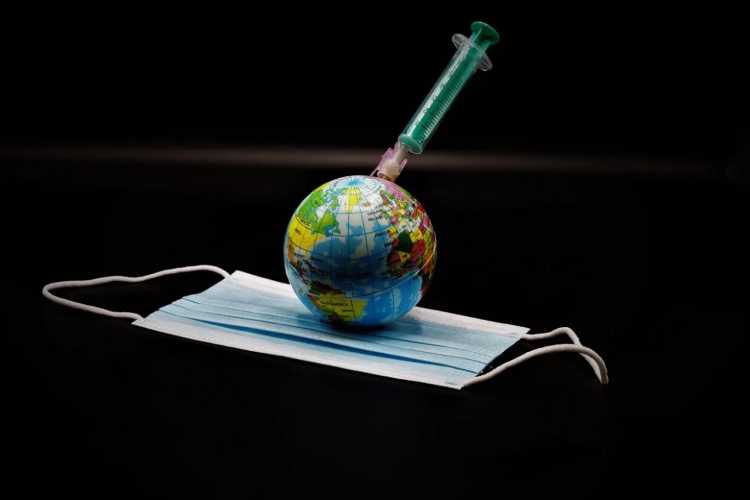
Lessons from Covid-19 pandemic: The Spanish flu outbreak between February 1918 and April 1920 infected 500 million people, a third of the world population at that time. Various fatality estimates put the death toll of the pandemic between 17 million and 100 million. Spanish flu is the deadliest pandemic in the known history of humankind. This outbreak happened when the world was much less interconnected and travel was restricted to shorter distances. Communication beyond boundaries was slow, difficult, and not of geo-political or strategic importance. The Covid-19 pandemic is different. It happened in a densely inter-connected world with global trade and social media binding people together despite rising nationalism peddled by political and policy leaders.
One can observe an information asymmetry in the handling of this crisis by political, policy, civil society, corporate and individual actors. For meaningful use of any information, it has to be binary (yes-no, true-false). In public services space, the ultimate accountability rests with bureaucracy and polity’s executive decision makers. Lack of right information at right time, or lack of relevant data or not collating/ sharing it could create panic.
READ I The Model Tenancy Act 2020: Towards a maintainable, inclusive rental market
Covid-19 second wave and its third degree
Covid-19 impacted the world is a unique way. Each of us have lived through our unique moments of distress in the past many months. This pandemic’s play has been like the fumes of a lit incense stick. No one could guess the direction of the movement of the pandemic and the rate at which it spread in the society. This led to chaos and confusion.
The second wave of Covid-19 pandemic has broken up many families, hearts, minds, and wallets. Lives and livelihoods have been lost. We will continue to have the feeling that we failed to do much more than what we did. Our failure to protect our loved ones, those near and far around us, in our personal and professional networks will haunt us for a long time. Generally, major public policies and political discourse cover the interests of the economically weaker sections of the society. But in dire situations like Covid-hit economy, not much has been discussed about the situation of the middle class — pre-, and post-pandemic.
Probably, it could be loss/ slowdown in business, loss of job, or heavy pay cuts coupled with bereavement in family. With no health insurance protection or low insurance coverage, many had to spend out-of-pocket for medical treatment. The funds saved for higher education / marriage / and retirement are now used to pay for healthcare. Basis of humanity cannot be in just reducing a bereaved person to someone bereft of savings and livelihood.
READ I Front-of-package labelling: Why India should opt for warning labels
Pressure on public healthcare systems
It’s an understatement to say that the public health infrastructure was under severe stress. Healthcare system has been stress-tested for over a year now. Medical and healthcare workers have been at it for the past 16 months. Our medical and health professionals who have fought the infection, helped countless patients and witnessed numerous deaths have also had these experiences. The battered, but not shattered frontline workers are still holding the fort. The citizens and the nation owe them a deep sense of gratitude. But please remember that gratitude is a heavy burden to carry.
Public systems might be or seem broken. We should forgive, but surely not forget. Societies seem fragile and near breaking point. One needs to hold onto hope and faith, the crutches towards purpose of existence. We should not become cynical and start blaming the system. In fact, the system is all of us. The way we dealt with the situation and the way we will rebuild our society will have to be our collective accountability.
Conversely, we do not have to formally thank the decision makers for doing their jobs and unabashedly seeking credit for it. In the corporate world, if the boss takes a decision about a project, it’s not the juniors’ job to post it on company intranet and sing praises. First of all, that’s her/his job to take decisions and be accountable for it. That’s why (s)he is in that role.
READ I Covid-19 lessons: India must add HEMS to healthcare infrastructure
Time for new basic rights
This crisis should wake up all of us to work towards bringing about drastic improvement in our healthcare infrastructure, disaster management systems, and education systems to increase the number of medical / healthcare professionals.
If we have learnt a few things from this crisis, it also should include this — we need to create a right to dignified living standards, which should include the right to quality civic amenities and right to equitable access to world class, inclusive healthcare. Does this sound too utopian to expect as a basic human right?
In a democracy, how can citizens achieve better healthcare or better quality of life — through the democratic process of policy development, interactive public discourse, inputs from all stakeholders and then through law making. Now, the biggest question is, who will set this process into motion? After all, every choice we make has consequences. The consequences of not making a choice could haunt our collective conscience for long.
(Srinath Sridharan is an independent markets commentator based in Mumbai.)
Srinath Sridharan is a strategic counsel with 25 years experience with leading corporates across diverse sectors including automobiles, e-commerce, advertising and financial services. He understands and ideates on intersection of finance, digital, contextual-finance, consumer, mobility, Urban transformation, and ESG. Actively engaged across growth policy conversations and public policy issues.

